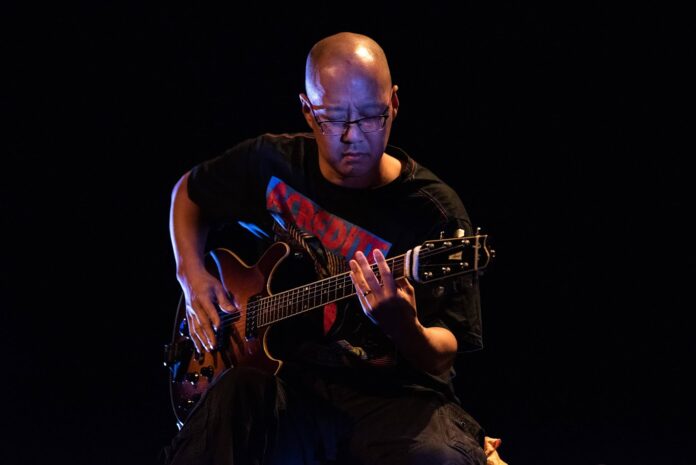It is not obvious to ask whether it is possible to give a form to improvisation based on an underlying topic. Is it possible to transform topics from everyday life, art or politics into consequent musical acts? On this point, two orders of consideration can be made:
1) all sounds coming from the physical and biological world have been deciphered by the human being, who is now able to extract frequencies; even the sounds/noises of space or those of a chemical reaction are objectively replicable;
2) the expressive space (feelings or character processes, for example) is unmanageable in sound if not by calling for help from the so-called ‘associations’ of thought. Numerous studies confirm that there is a link between music, science and philosophy that leads to realisable models in the universe of thought: music can build one by referring to the semantics of science just as the latter can build models by drawing information from musical grammar, and in every area of the correspondences created in this way a philosophical principle can support the paradigm.
Based on these considerations, a space for reflection opens up for the improviser, who can act in the details of his style and his thought, giving an answer to the questions that arise, something that also has certainly involved in a subliminal way the good guitarist Han-earl Park. American of Korean origins, Han-earl







